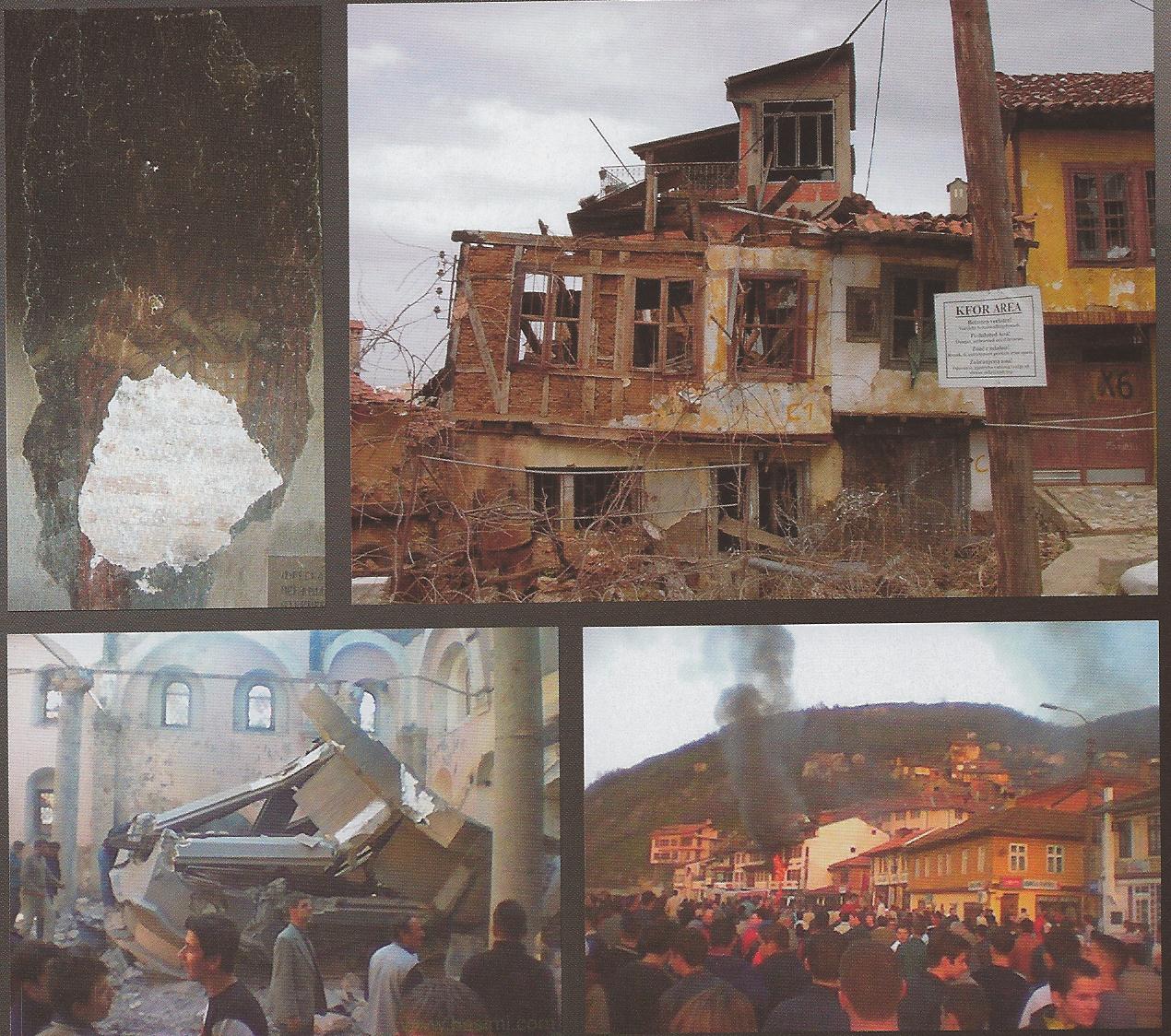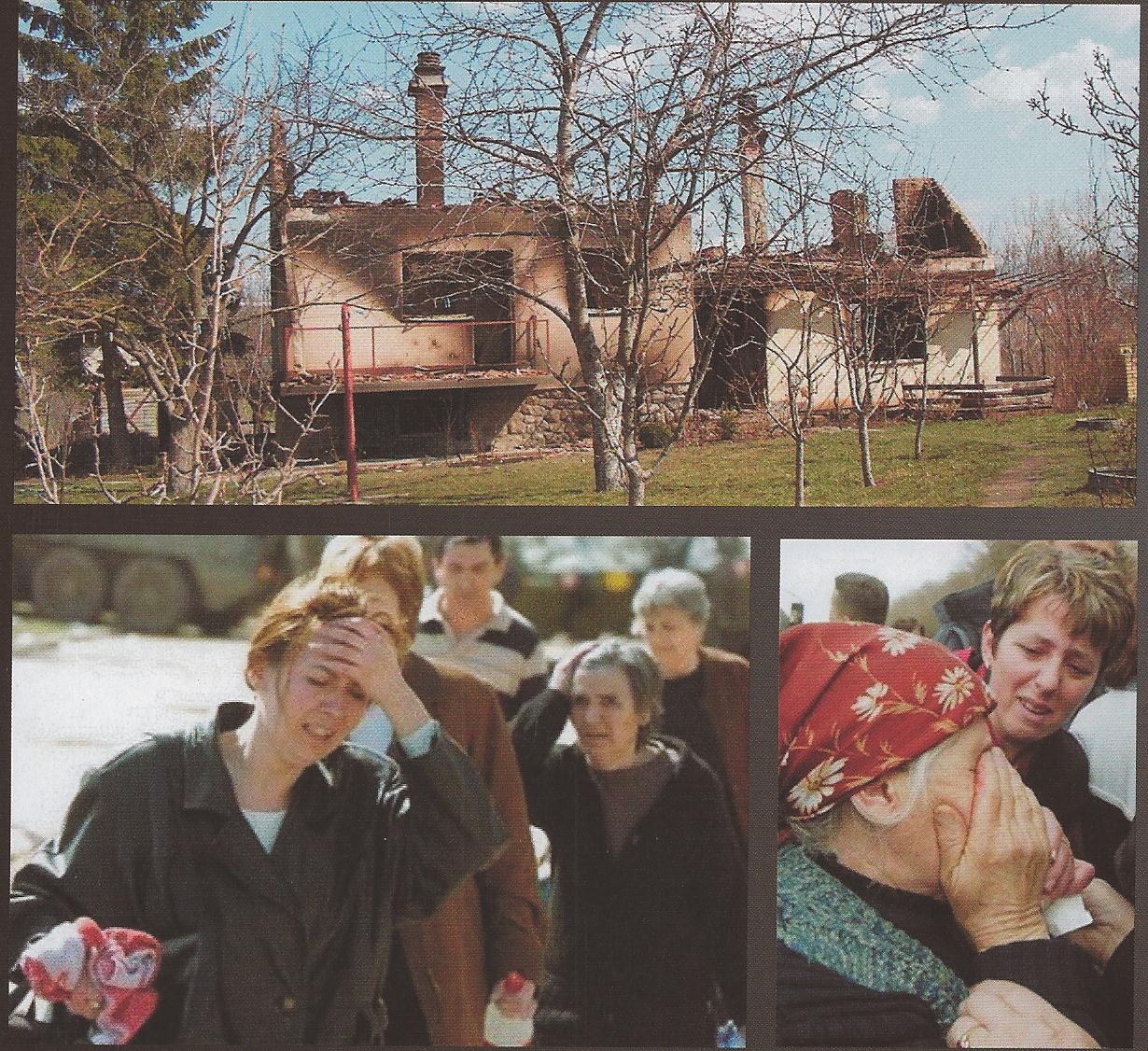March 2013 marks the ninth anniversary of the March pogrom of Serbs in Kosovo and Metohija, when 19 people were killed, 954 injured and more than 4,000 Serbs expelled from their homes in a wave of violence, from 17 to 19 March 2004. 35 Serbian Orthodox churches and monasteries were destroyed or burned to the ground, including 18 heritage cites, like Virgin Ljeviska in Prizren, back to the 14th century. 72 UN vehicles were demolished, six towns and nine villages "ethnically cleansed", 935 Serbian houses and ten public buildings were destroyed, burned or severely damaged.
The motive or the pretext for the pogrom was the Albanian media campaign in which local Serbs were accused of setting the dogs, across the river Ibar, against a group of Albanian boys from the village of Čabar, near Zubin Potok, causing one of them drown in the river. UNMIK police investigation found that the Albanian accusations were false, a spokesman for the International Police Neridge Singh said then that "the boys who survived were under strong pressure from Albanian journalists and politicians to accuse the Serbs from the neighboring village."
After the pogrom of Serbs, 270 Albanians were arrested, 143 people were convicted, most of them were fined, and 67 sentenced to prison terms. Unfortunately, the main protagonists of this pogrom from the political structures and from the former KLA have not yet been arrested or prosecuted.
These attacks by Albanian extremists have been condemned by the UN Security Council and the EU, and the Parliamentary Assembly of the Council of Europe adopted the relevant Resolution on 29 April 2004.
Even nine years after the expulsion, most victims of the March pogrom of Serbs have not returned to their homes, many of them still staying in collective centers or other people's houses as internally displaced persons.
Office for Kosovo and Metohija of the Serbian Government has organized a series of activities under the slogan "Crime without punishment", with the aim to remind the local and international public of the crime committed on 17 and 18 March 2004 against the Serbian and non-Albanian population in the Province.

